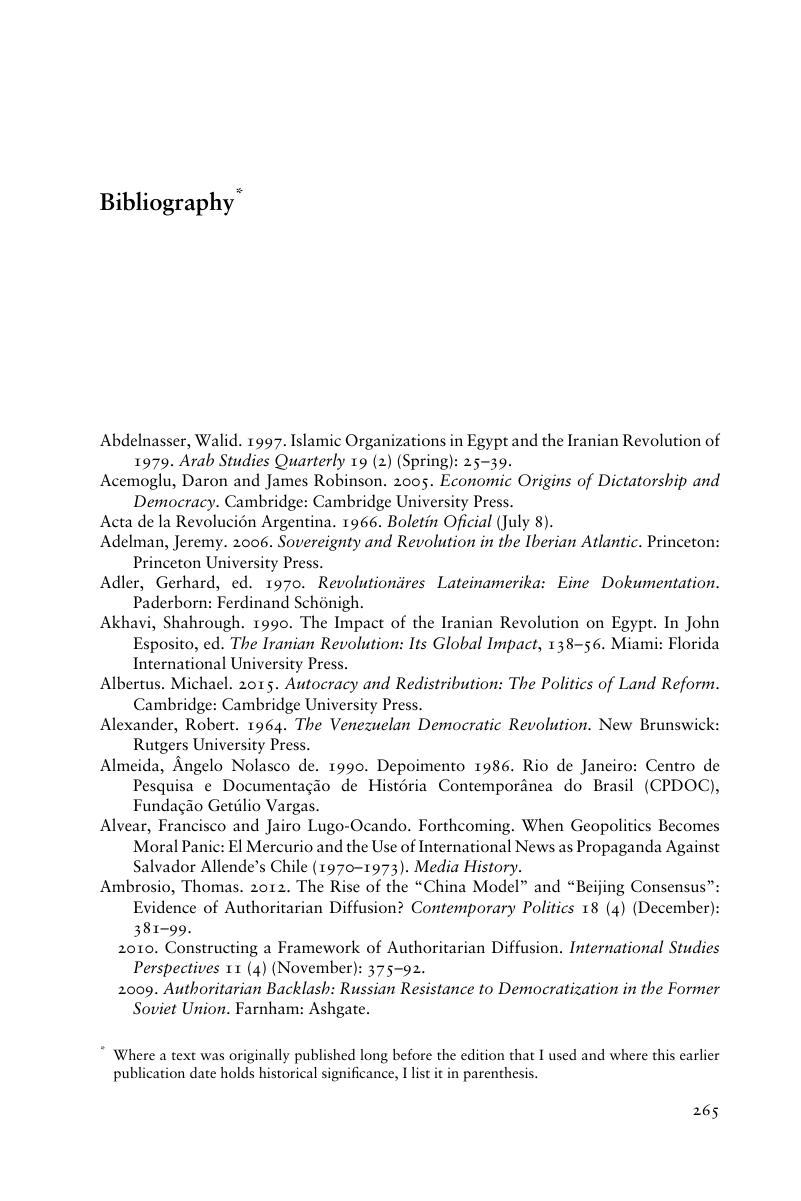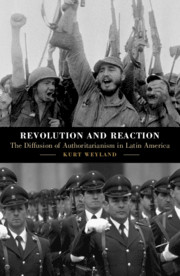Book contents
Bibliography
Published online by Cambridge University Press: 14 March 2019
Summary

- Type
- Chapter
- Information
- Revolution and ReactionThe Diffusion of Authoritarianism in Latin America, pp. 265 - 301Publisher: Cambridge University PressPrint publication year: 2019



